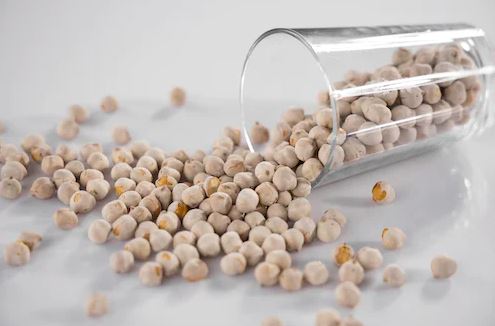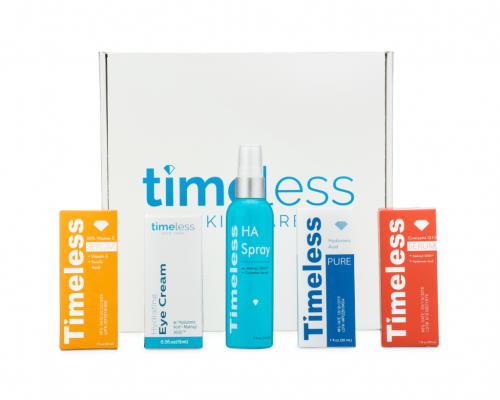Discovering 5 Health Benefits Of Soy
To maintain a balanced diet, the human body needs a variety of nutrients. Some ingredients are better for you than others, while others are very necessary. One such component that is both necessary and beneficial is soy.
Your entire health can be greatly impacted by incorporating soy into your diet. This will not only make you healthier but will also have several other advantages. Below, we’ll go through soy’s effects on your body and the benefits of including it in your diet.
Why is Soybean so important?
Numerous essential elements for human health can be found in soy organically. Protein is the most significant nutrient.
All the necessary essential amino acids are present in the protein found in soy products.
Additionally, sustainable soy like has a lot of healthy monounsaturated and polyunsaturated fatty acids and a moderate quantity of saturated fat.
Soy products are a great source of minerals, fiber, and carbohydrates.
The vitamins vitamin K, thiamine, riboflavin, vitamin B6, ascorbic acid, and niacin are also necessary. Soy contains many minerals like zinc, magnesium, potassium, and calcium. For further information on soy, you can check US Soy latest articles.
Since the body needs these nutrients to operate, they are all essential. Every vitamin has a different level of availability, though. Now let’s discuss the primary benefits of soybean.
1.Skin Benefits
Anti-inflammatory, collagen-stimulating, antioxidant, skin-whitening, and UV protection are all benefits of soy consumption.
They consist of bioactive compounds like:
- Proanthocyanidins,
- Isoflavonoids,
- Tannic acid,
- Trypsin blockers.
According to reports, dermatitis and cosmetology can both benefit from these extracts. Soybean trypsin inhibitors, a particular protein in soybeans, were found to have depigmenting characteristics.
In studies, it has been demonstrated that they reduce pigment deposition. The anthocyanins in soybeans also hinder the production of melanin.
Moreover, according to several American papers on soy, studies in rats showed that soybean extracts reduced wrinkles and inflammation brought on by UV radiation.
They also enhance collagen and skin elasticity.

2.Diabetes Control
The management of blood glucose in type 2 diabetic individuals can be improved by including soybeans in the diet.
Minerals, dietary fiber, complex carbohydrates, and protein can all contribute to this outcome. They may also be advantageous because of the phytoestrogens and soy peptides they contain.
As a result, soy beans have a lower glycemic index, which benefits people with diabetes.
Phytochemicals, which are potent antioxidants, are present in soybeans. By consuming them, diabetics can be protected from oxidative damage, which can exacerbate diabetes.
These beans may also treat hyperlipidemia, impaired glucose tolerance, and insulin resistance.
Unexpectedly, fermented soybean products—like natto, tempeh, doenjang, and gochujang—work better as anti-diabetic drugs.
This is most likely because it has been demonstrated that fermentation alters the molecular structure of isoflavonoids. Additional substances that are physiologically active.
Soybean is a terrific food with antioxidants that can fend against many cancers. It works by eliminating cancer-causing cells and free radicals in the body.
The body develops healthy cells with the aid of soybeans. Soybeans can benefit cancer patients by minimizing the negative effects of their treatments. They may also aid in cancer prevention.
Additionally, it has several health benefits. The only thing to remember is that it must be a planned component of your diet. It protects your general health from hazardous diseases, including cancer, diabetes, and congenital disabilities.
3.Blood Pressure Maintenace
A plant protein with a lot of lipids is soybean. It has long been utilized in East Asian cooking. It has gained attention for several benefits, including lowering cholesterol, avoiding cancer, and enhancing heart health.
It has a lower Glycemic Control Index than other foods in the same category (dairy milk), which might help regulate blood sugar. Additionally, it guards against osteoporosis.
Excessive consumption can affect thyroid and metabolic functions.
It is, therefore, not risk-free. Women’s dropping birth rates increase the likelihood of later attempts at pregnancy.
The genetic diversity among regional populations with shifting soy consumption patterns affects this incidence differently.
4.Hormones and Kidney Health
Soybeans also contain isoflavones, which act as phytoestrogens. These chemical substances have specific effects on the uterine lining and perhaps other hormone-dependent tissues because they mimic the effects of estrogens produced by the body.
Because estrogen controls cell proliferation, which affects tissue regeneration, isoflavones may benefit premenstrual syndrome (PMS) associated with heavy periods.
Research indicates soy has benefits comparable to hormone replacement therapy (HRT).
Your kidneys aid in the disposal of waste from your body and the filtration of your blood. You’re also susceptible to many health problems without healthy kidneys.
Although consuming tofu won’t improve kidney issues, it might lessen adverse effects.
Soy protein consumers with chronic renal impairment have decreased blood levels of phosphorus, lipids, and creatinine. The improvement of renal function may be aided by lowering these levels.

5.Fertility
A woman’s chances of getting pregnant through in vitro fertilization rise if she eats soy. According to researchers, soy’s isoflavones help BPA’s endocrine-disrupting effects to be lessened.
Take of soy isoflavones greater than 100 mg per day, or the quantity in 6 ounces of raw tempeh or 16 cups of soy milk, has been linked to impaired ovarian function, according to a review article in the Journal of Nutrition. On the other hand, moderate soy consumption did not raise any issues.
Menopause hot flashes can be uncomfortable and bothersome, but soy can help. Some people can find attain better hormonal balance if they consume soy on a regular basis.
Since the hormonal cycle in women is a sporadic one, consuming soy on days when the cycle is more prominent can be hugely beneficial.
However, a more straightforward method is to incorporate soy into your diet for 4 to 6 weeks and see what happens. If you witness a visible change, then, you can easily incorporate a sizeable soy portion in your diet.
Conclusion
Because soy is nutrient-dense and advantageous to your body, including it in your diet will significantly enhance your health.
If you eat vegetarian meals, soy can provide most of your protein needs while giving you enough calories.





